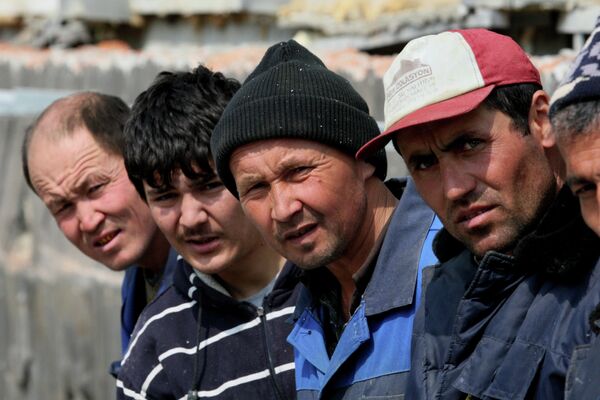MOSCOW, September 17 (RIA Novosti) – Russia’s business ombudsman proposed on Tuesday that the country’s authorities should declare amnesty for illegal migrants to help both the foreign workers and their employers.
Ombudsman Boris Titov, who helped put forward amnesty for Russians jailed on economic charges, wrote a column saying that business in the country needed a considerable inflow of legal migrants to thrive, and, therefore, legal status should be given to those migrants already working in Russia.
“Believe me, as a person who has been working in business for many years, everyone will win,” Titov wrote in his op-ed, published on the Ekho Moskvy radio station’s website, on Tuesday.
The ombudsman suggested that if the millions of illegal migrants in Russia obtained legal status, they would be able to contribute much more to the economy.
“Let’s assume that a legal migrant pays taxes and spends a considerable amount of his earnings in Russia. Only 36 percent of the money he earned goes outside the country,” Titov said in his article.
He stressed out that if Russia continued to tighten migration rules, the country risked losing the necessary migrant workforce, which might instead head to the neighboring states of Kazakhstan and Belarus.
A United Nations study published last week ranked Russia the world’s second-largest host of foreign migrants, with over 11 million. However, the Federal Migration Service estimates the number of illegal migrants at only 3 million.
The immigration issue remains a focal point of Russian politics, and recent polls show that most Russians have negative attitudes toward migrants.
Last month, police held a string of raids targeting migrants, detaining thousands. According to migration officials, the majority of illegal migrant workers travel to Russia from post-Soviet states, with which Russia shares a visa-free regime.
Millions of such migrants stay and work in Russia either unlawfully or under illegally obtained permits. Human rights advocates have repeatedly complained that illegal migration is being fostered by corrupt state officials, bureaucracy and employers, urging the government to help ease the legalization process for migrants in Russia.
Following a proposal by President Vladimir Putin, the Russian government plans to introduce rules by 2015 that would require residents of former Soviet republics to use international passports when traveling to Russia.
Business ombudsman Titov, who was appointed to the newly created office by Putin last year, warned in his opinion piece that stricter migration laws would have a negative effect.
The chief of the Federal Migration Service, Konstantin Romodanovsky, responded with comments against Titov's proposal.
“I can definitely say that there cannot be an amnesty for those who hang around with unclear purposes and violate our rights,” Romodanovsky told RIA Novosti, adding that new regulations would bar foreigners violating Russian law from entering the country in future.
A parliament member with the ruling United Russia party, Irina Yarovaya, called Titov's proposition “dangerous” and contradicting the “interests of Russians.”
In June, Titov proposed releasing almost 100,000 people sentenced on economic-related charges from criminal liability, including those serving suspended sentences – an idea that got backing from Putin.


